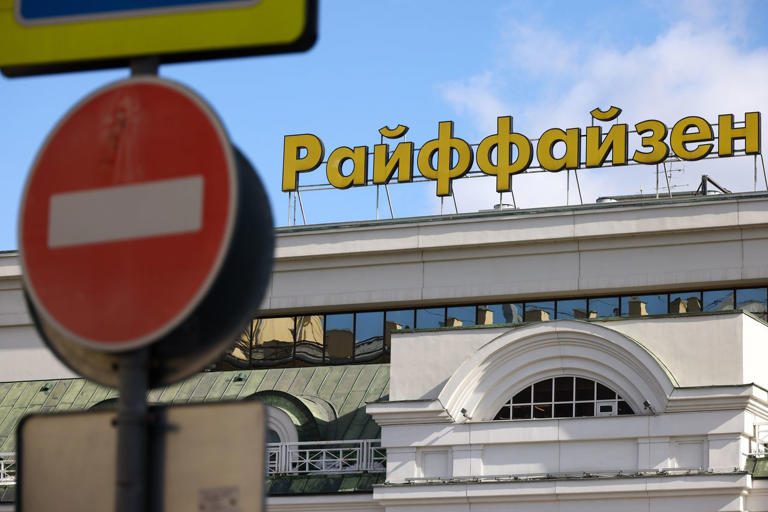As the United States and Europe sought to isolate Russia from the Western financial system, Moscow sought alternative avenues, with banks in the Gulf and Europe playing a crucial role in maintaining ties with Russia.
However, recent efforts by Washington to close these loopholes are showing signs of success. Dubai’s primary state-owned bank has reportedly closed some accounts held by Russian oligarchs and traders of Russian oil, while Turkish lenders are becoming increasingly cautious about handling Russia-related business. Additionally, U.S. authorities have put bankers in Vienna, another significant financial hub, on alert.
These developments follow visits by U.S. officials and recent rounds of sanctions targeting trading firms and other entities. Late last year, the White House granted the Treasury Department expanded sanctions authority, empowering it to penalize foreign banks for transactions involving Russia’s military-industrial base.
Emirates NBD, a major Dubai-based bank, has played a central role in this shift. Russian businesses and oligarchs turned to the United Arab Emirates, particularly Dubai, following Russia’s invasion of Ukraine in 2022. Emirates NBD reportedly benefited significantly from this influx, handling substantial Russian oil trades and establishing a department tailored to Russians seeking to safeguard their wealth. However, under mounting pressure from the U.S., Emirates NBD has reversed course. The bank has closed its Russia-focused department, ceased accepting ruble transfers from Russia, and closed numerous accounts held by Russian entities, including those connected to sanctioned individuals and entities.
Some of these closures affect companies within a network of trading and shipping firms associated with Etibar Eyyub, a former executive at the U.A.E.’s Coral Energy. This network, which includes Voliton and Bellatrix Energy, has played a crucial role in facilitating Russia’s oil exports to global markets.
Emirates NBD has instructed the closure of accounts held by Coral, Voliton, Bellatrix, and another firm linked to Eyyub, Pontus Trading.
A spokesman for Emirates NBD emphasized the bank’s commitment to combating financial crime and money laundering, as well as its compliance with applicable international sanctions. The bank collaborates closely with regulators and law enforcement agencies to uphold these priorities.
Following the publication of the article, a spokesperson for Coral disputed the claims, stating that Coral maintains strong relationships with its banking partners and that the questions posed by the Journal were based on inaccurate or misleading premises. The spokesperson reiterated that Coral has no association with companies operated by Eyyub.
Representatives for Pontus, Bellatrix, and Voliton did not respond to requests for comment.
According to financial professionals in the Emirates, Emirates NBD has closed accounts held by Uralkali, a Russian fertilizer giant, and by Russian businessman Ivan Tavrin, who was sanctioned by the U.S. government in December. However, a spokesperson for Urakali refuted this information, stating that the company does not have any accounts with Emirates NBD. Representatives for Tavrin and his company, Kismet Capital, did not respond to requests for comment.
Banque Misr, the Dubai branch of a small, state-owned Egyptian bank, has also closed accounts for Coral and some other companies, according to sources familiar with the matter. Banque Misr did not provide a response to requests for comment.
In Turkey, the U.S. government’s efforts to influence Ankara’s economic relations with Russia have resulted in changes. Turkish companies have faced penalties for aiding Russian violations, and the U.S. has urged the Turkish government to ensure compliance with sanctions. Turkish exporters have reported difficulties in receiving payments, with some banks halting operations related to fund transfers from Russia to Turkey.
Russian Ambassador to Turkey, Alexei Yerkhov, stated that Russia is engaging in discussions with Turkish officials regarding the refusal of some Turkish banks to process payments on behalf of Russian companies.
Austria, a key banking hub for Central and Eastern Europe, has also faced pressure from the U.S. Treasury to ensure sanctions compliance. Treasury official Anna Morris met with the Austrian government and banks, including Raiffeisen Bank International, which has a unit in Russia. Raiffeisen is seeking to sell or spin off its Russian unit but faces obstacles due to Russian regulations.
The intensified U.S. efforts have disrupted Russia’s energy exports, which are crucial for funding the war in Ukraine. Voliton and Bellatrix, major resellers of oil from Russia’s Rosneft Oil, have ceased handling Russian oil trades since being sanctioned. However, despite pressure from the U.S., Russian oil continues to be exported.
Last month, the Financial Action Task Force removed the United Arab Emirates from its gray list of noncompliant countries, citing significant progress in addressing deficiencies in anti-money laundering measures.
